With Delta variant spreading worldwide, China is racing to help build global immunity barrier
-- WHO said the Delta variant is the fastest and fittest coronavirus strain that will "pick off" the most vulnerable people.
-- Many health experts said the vaccines are still effective in preventing severe illnesses and reducing deaths.
-- In fighting the pandemic, China has been keeping its word in championing international cooperation.
BEIJING, June 23 (Xinhua) -- The highly contagious Delta COVID-19 variant has been reported in more than 90 countries and regions around the world, posing a serious threat to the global pandemic fight and highlighting the urgency to build a global immunity barrier through mass vaccination.
Facing the widespread variant, China has been sparing no effort to provide vaccines for the international community, and calling for fair and equitable distribution of and access to COVID-19 vaccines globally.

SPEED BUMP TO PANDEMIC FIGHT
First identified in India, the Delta variant is the fastest and fittest coronavirus strain that will "pick off" the most vulnerable people, the World Health Organization (WHO) said Monday.
It has the potential "to be more lethal because it's more efficient in the way it transmits between humans," Mike Ryan, executive director of the WHO Health Emergencies Program, said Monday at a news conference.
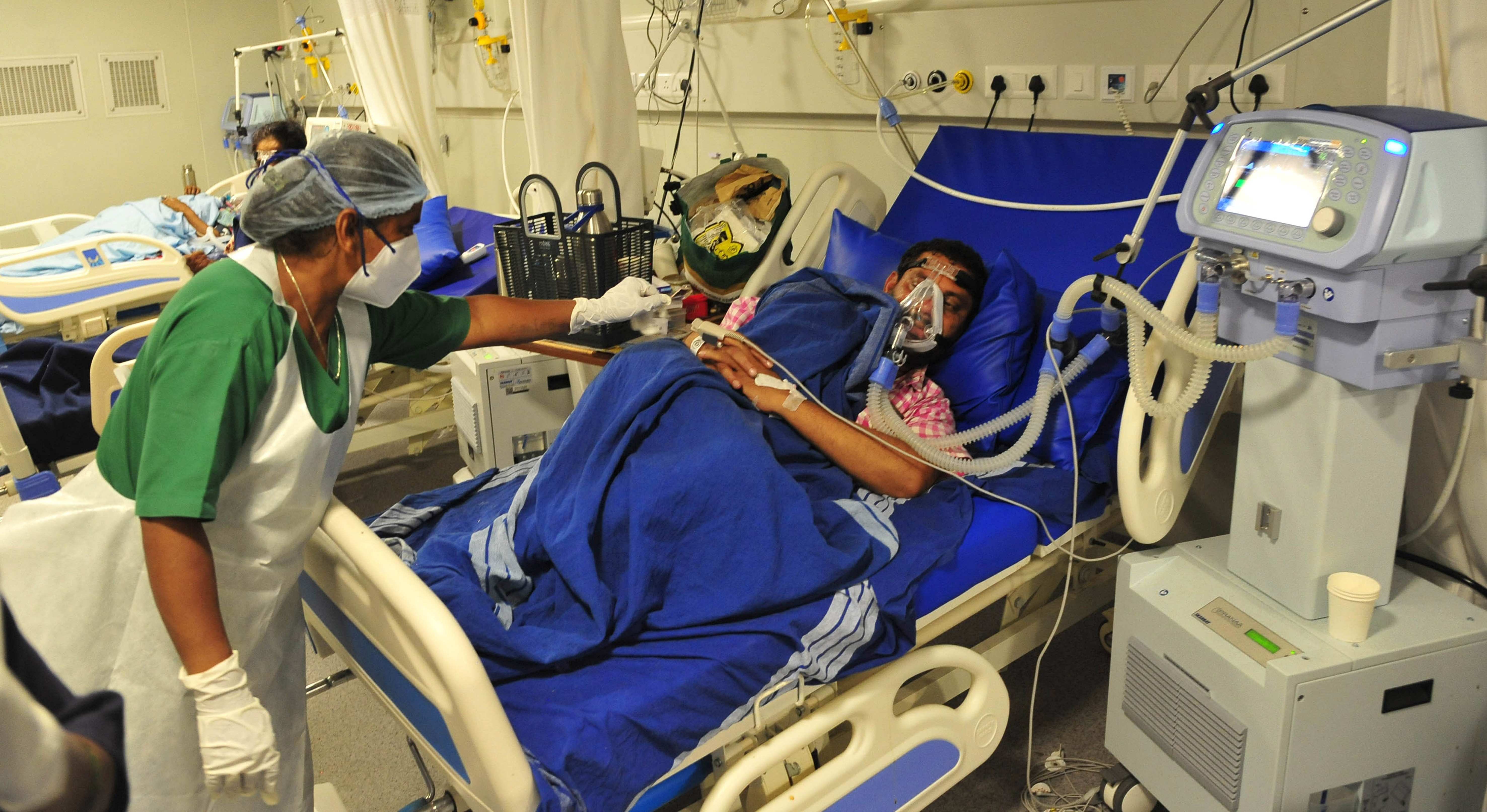
Patients receive treatment in a COVID-19 ward of a hospital in Bangalore, India, April 30, 2021. (Str/Xinhua)
According to British officials, Delta is 60 percent more infectious than Alpha, the variant first detected in Britain. The Delta variant is now responsible for nearly all of the new COVID-19 cases in Britain, according to research by Public Health England (PHE).
British Prime Minister Boris Johnson has announced a four-week delay to the final step of England's roadmap out of COVID-19 restrictions until July 19, amid a surge in Delta cases.
In the United States, Delta is now responsible for about one in every five COVID-19 cases, and its prevalence has doubled in the last two weeks, the U.S. Centers for Disease Control and Prevention reported Tuesday.
The country's top infectious disease expert, Anthony Fauci, warned at a White House briefing on the same day that Delta is now the greatest threat to eradicate COVID-19 in the country's borders.
Delta has also paused the planned relaxation of lockdown restrictions in India, Russia, Thailand and many other countries, with global public health experts keeping tabs on potential additional mutations to the virus.
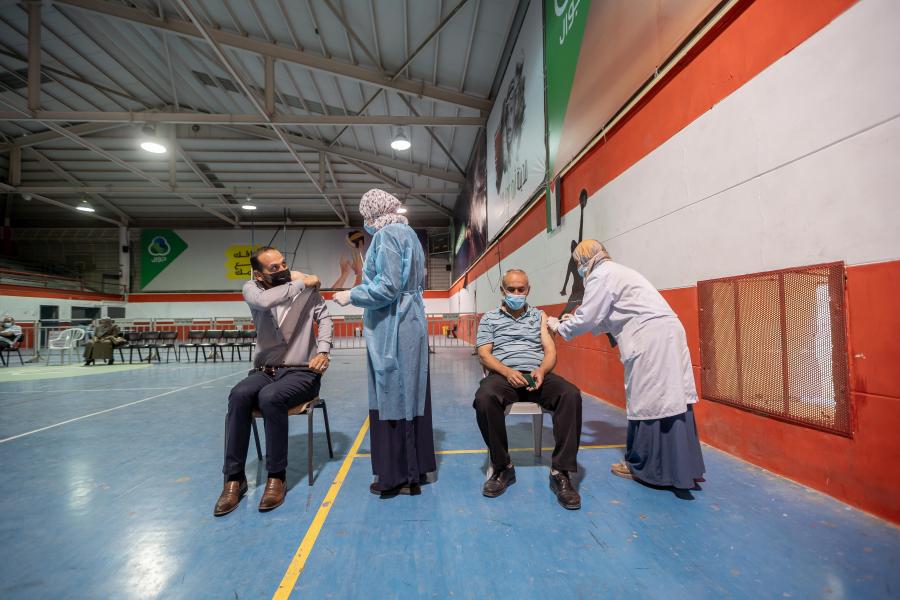
Palestinian men receive the second doses of Chinese Sinopharm COVID-19 vaccines at a medical center during a vaccination campaign in the West Bank city of Bethlehem, April 29, 2021. (Photo by Luay Sababa/Xinhua)
VACCINES STILL EFFECTIVE
A report released by The Lancet on June 3 showed that the titers of neutralizing antibodies against the Delta strain were reduced after one vaccine dose. However, many health experts said the vaccines are still effective in preventing severe illnesses and reducing deaths.
Recent data published by PHE showed the AstraZeneca vaccine is 92 percent effective against hospitalization from the Delta variant after two doses, and the Pfizer-BioNTech vaccine is 96 percent effective against hospitalization after two doses.
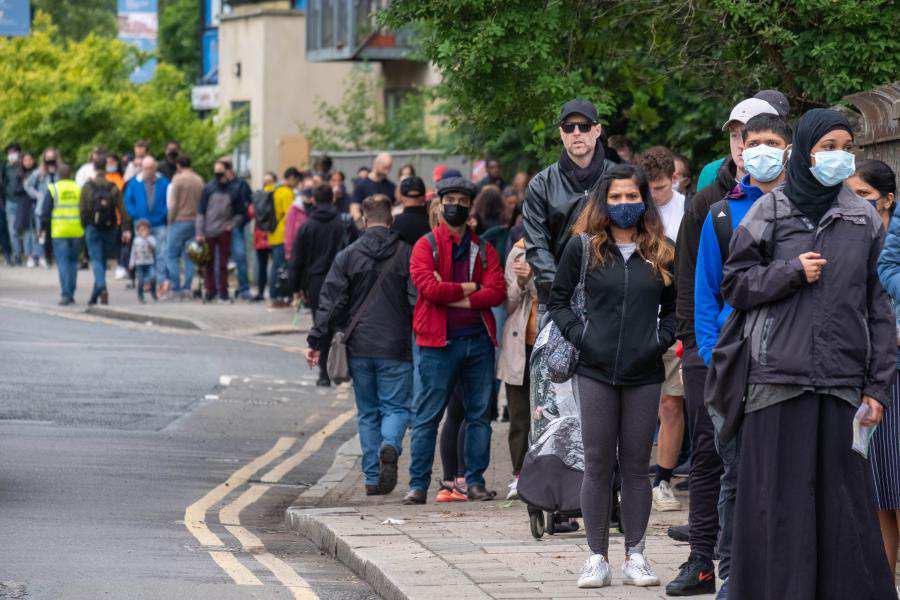
People line up outside Bridge Park Community Leisure Center to receive COVID-19 vaccines in Brent, northwest London, Britain, June 19, 2021. (Photo by Ray Tang/Xinhua)
Chinese pharmaceutical company Sinovac Biotech Ltd. also conducted research on the Delta variant. "What we found is that the current vaccines can neutralize these variants ... Inactivated vaccines have good neutralizing effect," said Yin Weidong, CEO of the company.
"Through the industrial layout of our research in COVID-19 vaccine and the completed clinical research, the efficiency of vaccine research in mutant strains will be greatly improved," Yin said. "Once the virus mutates, we can quickly produce a vaccine with the mutated strain."
The WHO validated the CoronaVac COVID-19 vaccine developed by Sinovac Biotech for emergency use on June 1. China's Sinopharm COVID-19 vaccine was also validated for WHO emergency use earlier this year. The two Chinese vaccines are expected to help alleviate the inequity in access to vaccines.
The world desperately needs multiple COVID-19 vaccines to address the huge inequity in access across the globe, said Mariangela Simao, WHO assistant director-general for access to medicines and health products.
"The only way to stop the virus from mutating is through vaccination," Vineeta Bal, an immunologist and professor at the Indian Institute of Science Education and Research, told Indian local media. "Prevention is the only weapon in our hand."
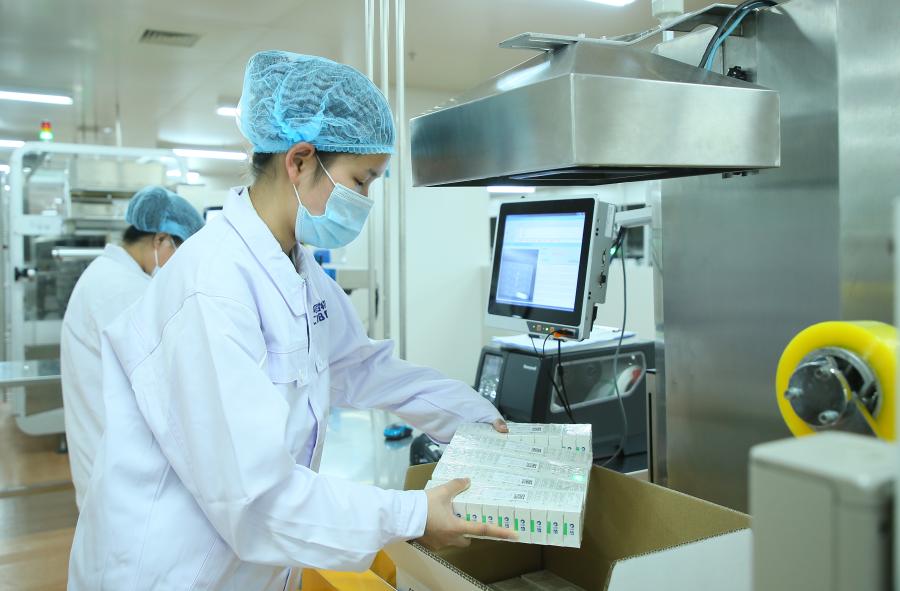
Staff members work at the packing line of the Sinopharm vaccines in Beijing, capital of China, May 31, 2021. (Xinhua)
CHINA HELPS CEMENT GLOBAL IMMUNITY
In fighting the pandemic, China has been keeping its word in championing international cooperation.
Despite a tight supply and huge domestic demand, China has provided more than 350 million doses of COVID-19 vaccines for the international community, including vaccine aid for over 80 developing countries and batches exported to more than 40 countries, the latest data showed.
China has also pledged to provide the first batch of 10 million COVID-19 vaccine doses to COVAX, an international initiative aimed at promoting equitable access to vaccines.
Most recently, the first batch of vaccines produced by China's Sinopharm to be delivered to COVAX has rolled off the production line. Those vaccines feature all-English packaging, a new technology that attaches temperature sensors to the vials, and updated product information in accordance with the WHO standards.
A batch of China's CoronaVac COVID-19 vaccines arrived in Tunisia on Monday afternoon. Thailand's Chulabhorn Royal Academy said that it would allocate a batch of the Sinopharm vaccines arrived on Sunday to medical, educational and charity organizations.
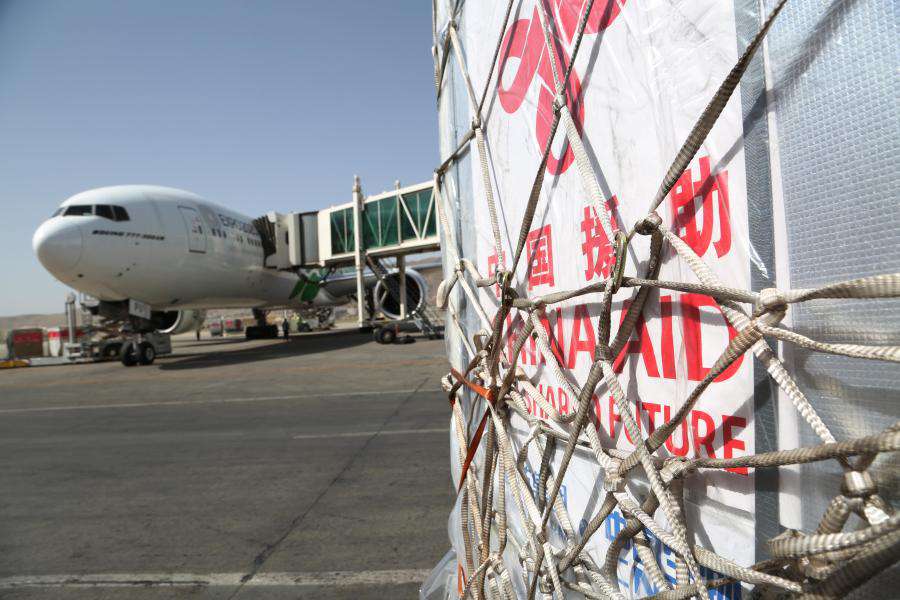
Photo taken on June 10, 2021 shows packages of Chinese COVID-19 vaccines arriving at the Hamid Kazia International Airport in Kabul, capital of Afghanistan. (Xinhua/Rahmatullah Alizadah)
Three Chinese companies are currently co-producing vaccines with eight countries, according to Mao Junfeng, an official with the Ministry of Industry and Information Technology.
China also supports fair and equitable distribution of and access to COVID-19 vaccines globally.
Chen Xu, head of the Chinese Mission to the United Nations Office at Geneva, noted Monday at the ongoing 47th Session of the UN Human Rights Council that of all the 2.6 billion doses administered globally, only about 0.3 percent were in low-income countries.
Pointing to a "disturbing trend of vaccine nationalism and stockpiling of vaccine doses" in some developed countries, Chen said China calls for "international development cooperation to help developing countries realize sustainable development goals and mitigate the impact of the pandemic."
Photos
Related Stories
- Warping minds: Western media continues to churn out the same old falsehoods
- China urges for global equitable access to COVID-19 vaccines
- Hong Kong to partially relax COVID-19 control after 2 weeks with no local cases
- Chinese mainland reports 25 new confirmed COVID-19 cases, 2 locally transmitted
- DPP's political manipulation over vaccines harms Taiwan people: spokesperson
Copyright © 2021 People's Daily Online. All Rights Reserved.










